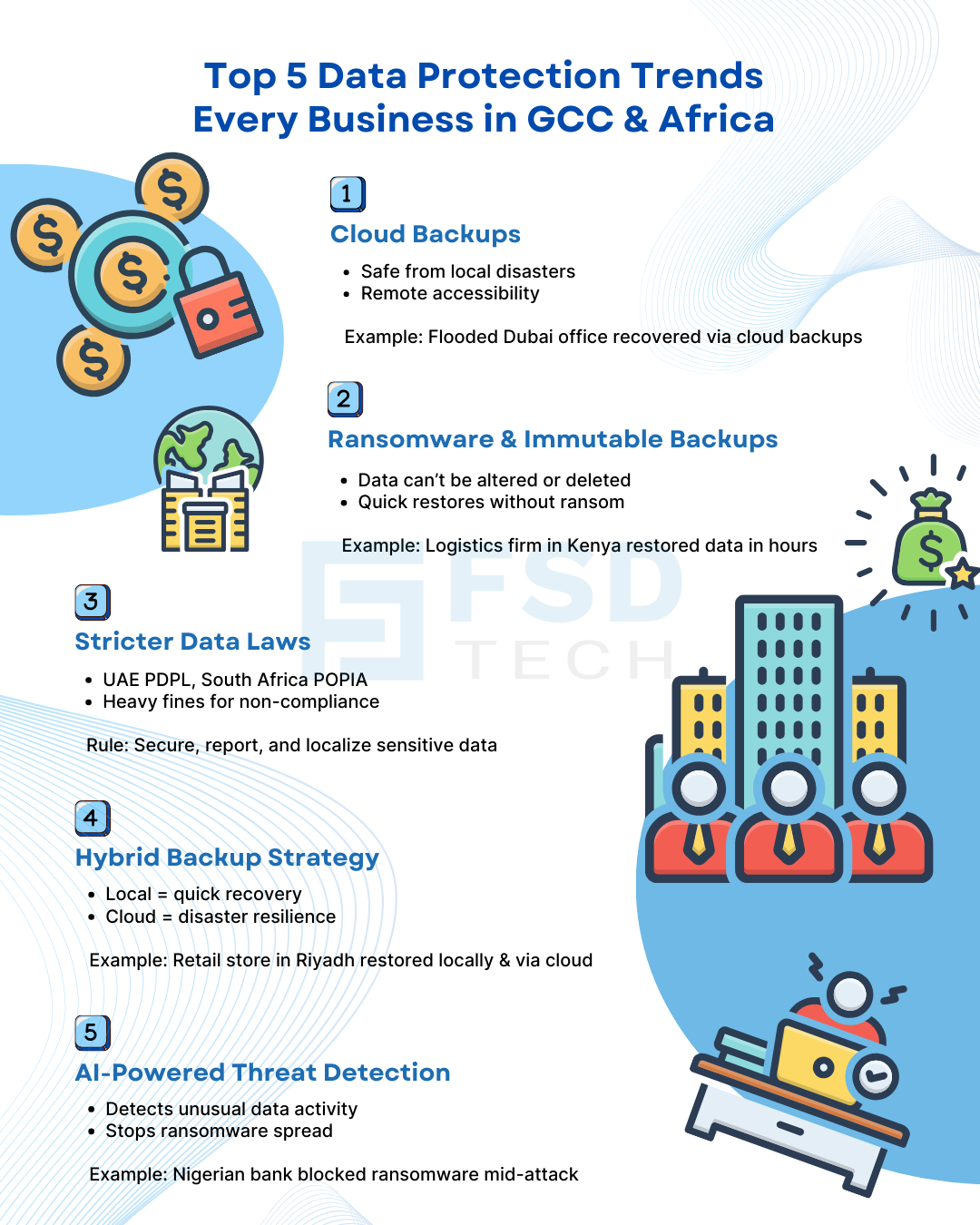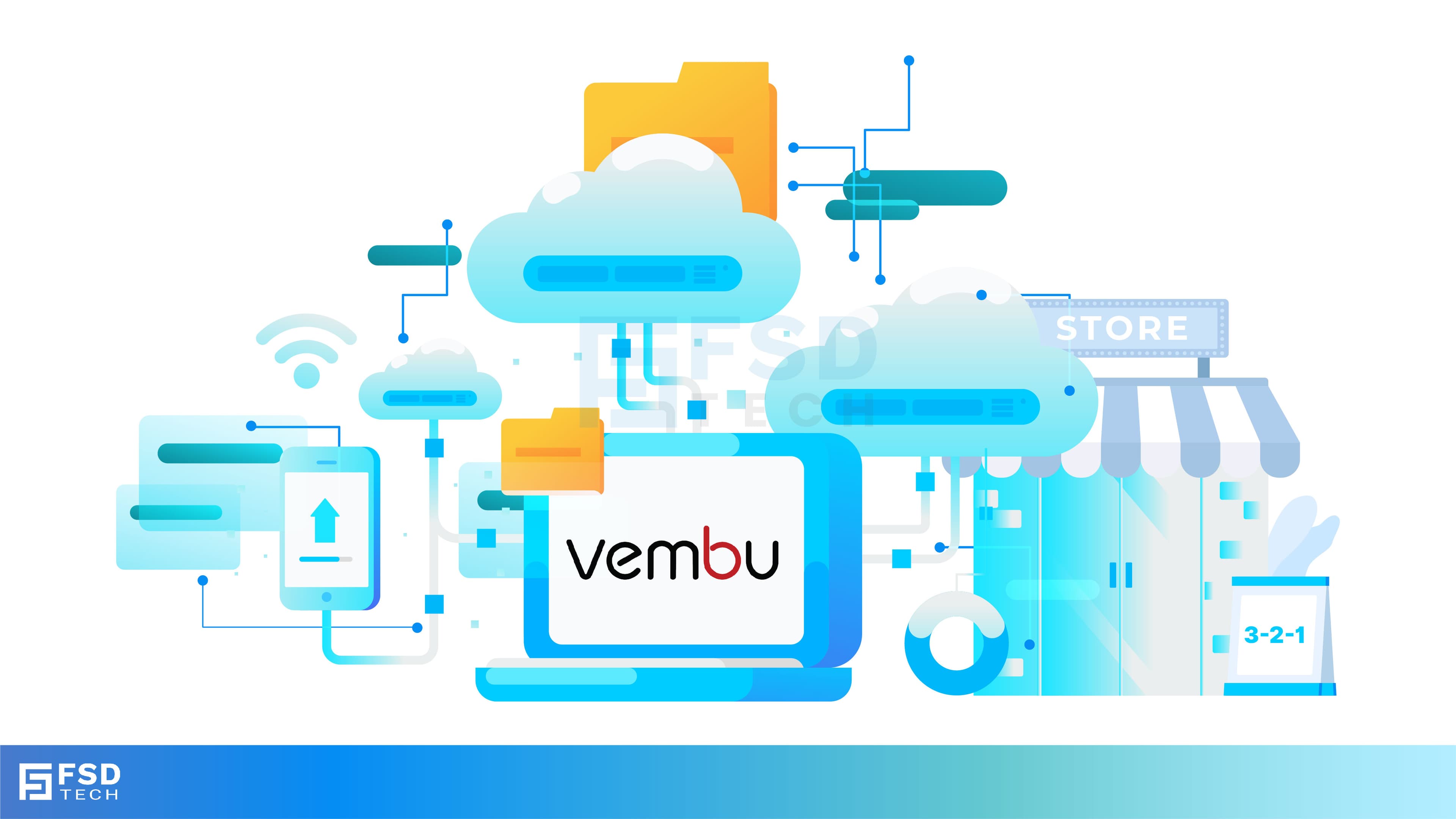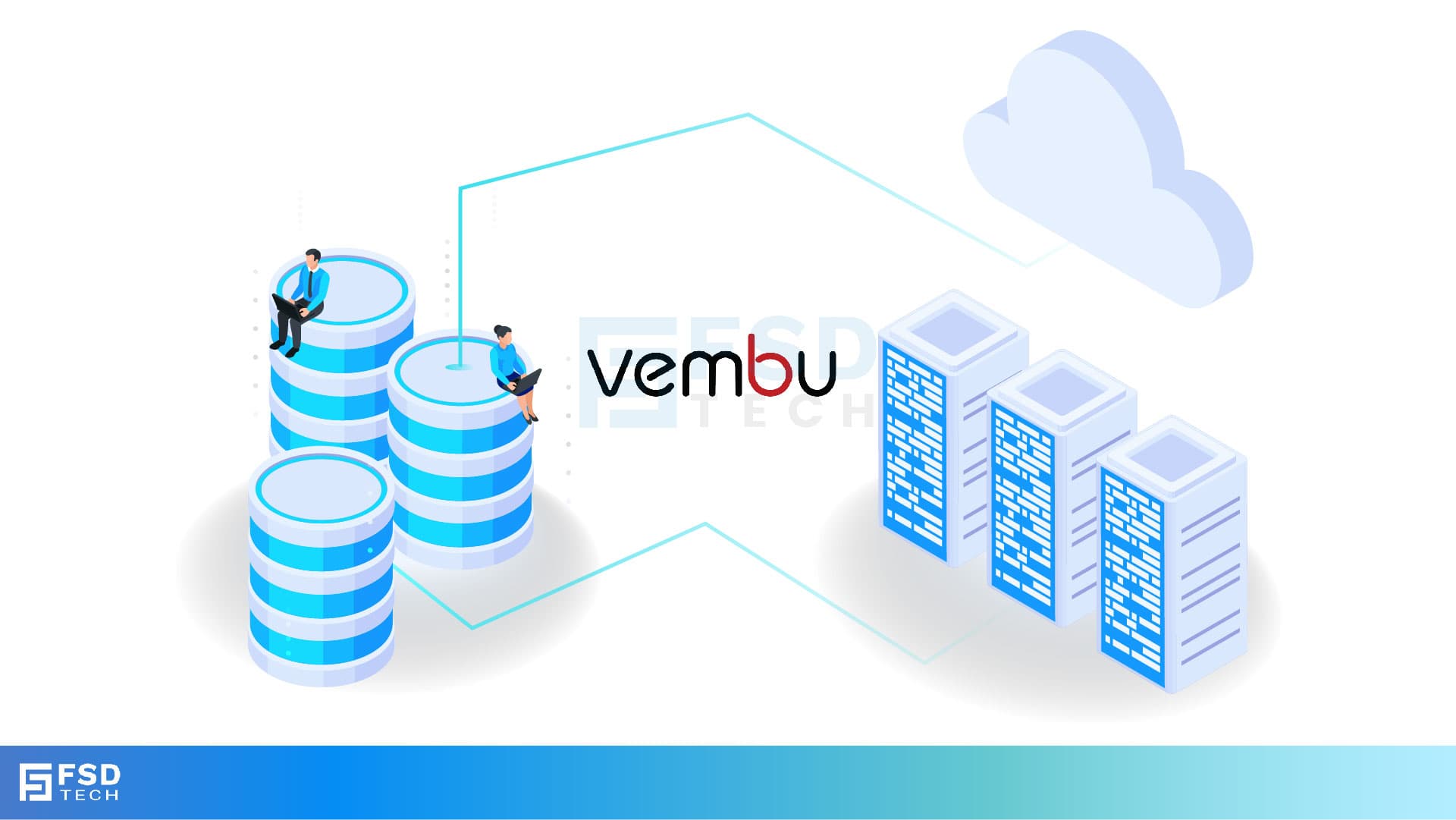.webp&w=3840&q=75)
How ClickUp Enables Outcome-Based Project Management (Not Just Task Tracking)
🕓 February 15, 2026

Because protecting your business data is no longer optional – it’s survival
Think about the lifeblood of your business:
Now imagine losing it all overnight because of:
The result?
That’s why data protection is not just an IT department responsibility — it’s a core business survival strategy.
And in 2025, the way businesses in GCC & Africa protect their data is changing fast because threats are evolving, technology is advancing, and laws are getting stricter.
👉 Not sure if your business could survive a data disaster? Book a Free Data Protection Health Check and find out in minutes.
A few years ago, most companies relied mainly on physical backups — external hard drives, USB sticks, or backup tapes.
Today, more businesses are moving their backups to the cloud.
Why the shift?
For example:
A company in Dubai had its office flooded after heavy rain. All local computers and backup drives were destroyed. But their cloud backups were safe, and they were able to continue operations remotely within hours.
Ransomware attacks are on the rise in GCC and Africa. In these attacks, criminals lock your files and demand payment to unlock them. Sometimes, they also threaten to leak your data.
One of the strongest defenses is immutable backups — backups that cannot be changed or deleted for a set period of time.
Why it matters:
Example:
A logistics firm in Kenya faced a ransomware attack. Because they had immutable backups, they restored their data in a few hours without paying a single shilling.
🔒 Stop ransomware before it stops you. Fill Out the Free Consultation Form to secure your data strategy.
Governments in the GCC and Africa are introducing tougher data protection laws.
Examples include:
These laws often require businesses to:
Why it matters:
If you break these rules, you could face heavy fines and damage your company’s reputation.
Having a secure and reliable backup plan is one of the easiest ways to stay compliant.
Instead of choosing only local backups or only cloud backups, many companies now use both. This is called the hybrid approach:
Why it’s smart:
Example:
A retail store in Riyadh lost internet access for two days after a regional outage. They restored sales data from local backups instantly. Months later, a fire in their office damaged all local equipment — but they restored everything from the cloud.
Backup tools are getting smarter with Artificial Intelligence (AI).
They can now:
Example:
A bank in Nigeria used an AI-enabled backup solution that detected unusual file changes caused by ransomware and stopped the backup process. This prevented the infected files from overwriting safe backups.
The Big Picture
In 2025, businesses in GCC and Africa face more threats to their data than ever before.
The companies that will thrive are those that:
Data protection isn’t just a technical issue — it’s a business survival issue.
Tomorrow’s Topic : We’ll talk about “The Evolution of Ransomware – Then vs Now” and why backup strategies must keep up.
Do you know which of these 5 trends your business is ready for — and which ones you’re missing? Let’s create a Vembu BDR Suite Data Protection Plan that covers them all. Book your free consultation today

Data protection means keeping your important business information safe from loss, theft, or damage — and making sure you can get it back quickly if something goes wrong.
It’s not just about storing files; it’s about having a plan to recover them when disaster strikes.
Because almost every business now relies on digital information — sales records, customer lists, inventory data, payment systems. If that information is lost or locked, your business can grind to a halt.
With cyberattacks, power failures, and new data protection laws on the rise, the risks are higher than ever.
Yes. GCC and African countries are experiencing a sharp rise in ransomware incidents. Attackers are using AI tools to create realistic phishing emails and identify weak security faster.
They don’t care if your business is big or small — they care if you’re easy to attack.
Not fully. These services keep your files accessible but don’t always provide long-term backups. If a file is deleted or encrypted by ransomware, you might only have a short time (like 30 days) to restore it — after that, it’s gone.
That’s why businesses need separate backup solutions.
Many GCC and African countries are introducing stricter data protection regulations, similar to Europe’s GDPR. These laws require you to protect customer data and can fine you heavily if you lose it due to negligence.
Employees working from home may use unsecured Wi-Fi or personal devices without proper protection. Hackers can use these weaker points as entryways into your business network.
Small businesses are actually prime targets because they often have weaker defenses. A small shop might not lose millions like a big corporation, but losing even a few thousand in one attack can be enough to cause serious damage — or force closure.
It ensures your data is automatically saved in safe locations and can be restored quickly — so downtime is minimized.
A good solution also keeps multiple “versions” of your data so you can go back to a clean copy if ransomware hits.
Vembu provides:
It depends on your business. Some companies back up every few minutes; others once a day. The rule is: the more often, the less data you lose if something goes wrong.
No. If your backups are only in your office, they can be destroyed in the same fire, flood, or theft as your main systems. Best practice is hybrid backup — one copy local for speed, one copy in the cloud for safety.
Not necessarily. Many modern solutions like Vembu are priced to be affordable for small businesses while still offering enterprise-level protection.
Ask yourself:
If you can’t answer “yes” to all, you may not be fully ready.
Start with a data protection health check — review your current setup, test a restore, and identify gaps. This can be done with the help of a solution provider like Vembu.

Nasmal is a Solution Architect & Business Analyst focused on AI, Data, Automation, BCP, and Process Optimization. He helps businesses evolve from reactive to proactive, data-driven, and resilient operations. With hands-on expertise, he simplifies complex tech into clear, easy-to-understand blogs.
Share it with friends!

🕓 November 24, 2025

🕓 September 16, 2025

🕓 September 5, 2025
share your thoughts